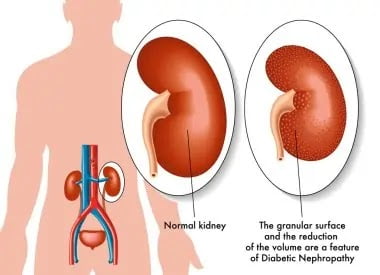Heart valve disease is a condition that affects the function of one or more of the four valves in the heart. These valves are responsible for regulating the flow of blood through the heart and to the rest of the body. When the valves become damaged or diseased, they can either narrow (stenosis) or leak (regurgitation or prolapse), affecting the amount and direction of blood flow. This can lead to serious complications such as heart failure, stroke, or sudden cardiac death. In this article, we will explore the causes, symptoms, and treatment options for heart valve disease.
What are the causes of heart valve disease?
There are different types of heart valve disease, and they can affect any of the four valves: the mitral, tricuspid, aortic, and pulmonary valves. Some people are born with heart valve disease, which is called congenital heart valve disease. This can be due to genetic factors, chromosomal abnormalities, or infections during pregnancy. Other people develop heart valve disease later in life, which is called acquired heart valve disease. This can be due to various factors, such as:
- Age-related changes: As people get older, the valves can become thickened, calcified, or stiff, reducing their flexibility and function.
- Infections: Certain infections, such as rheumatic fever or endocarditis, can cause inflammation or damage to the valves, leading to scarring or deformity.
- Heart conditions: Some heart conditions, such as coronary artery disease, heart attack, cardiomyopathy, or arrhythmias, can affect the blood flow or pressure in the heart, putting stress on the valves and causing them to wear out or malfunction.
- Other factors: Some other factors that can increase the risk of heart valve disease include high blood pressure, high cholesterol, diabetes, smoking, obesity, and radiation therapy.
What are the symptoms of heart valve disease?
Many people with heart valve disease do not have any symptoms for a long time, especially if the disease is mild or progresses slowly. However, as the disease worsens, it can cause various symptoms, such as:
- Shortness of breath, especially when lying down, exercising, or under stress.
- Fatigue, weakness, or dizziness.
- Chest pain, pressure, or discomfort.
- Palpitations, irregular heartbeat, or skipped beats.
- Swelling of the ankles, feet, legs, or abdomen.
- Fainting, lightheadedness, or loss of consciousness.
- Fever, chills, or night sweats.
The symptoms of heart valve disease can vary depending on the type and severity of the disease, the valve affected, and the individual’s health status. Therefore, it is important to consult a doctor if you experience any of these symptoms or have a history of heart valve disease or risk factors.
What are the treatment options for heart valve disease?
The treatment options for heart valve disease depend on the type and severity of the disease, the valve affected, and the individual’s symptoms and overall health. The main goals of treatment are to relieve the symptoms, prevent complications, and improve the quality and length of life. The treatment options may include:
- Medications: Some medications can help to manage the symptoms and complications of heart valve disease, such as diuretics, beta-blockers, angiotensin-converting enzyme (ACE) inhibitors, angiotensin receptor blockers (ARBs), anticoagulants, antiplatelets, or antibiotics. However, medications cannot cure or reverse the disease, and they may have side effects or interactions with other drugs.
- Surgery or procedures: Some people with heart valve disease may need to have surgery or a minimally invasive procedure to repair or replace the damaged or diseased valve. This can restore the normal function and blood flow of the valve and improve the symptoms and outcomes. There are different types of surgery or procedures, such as valve repair, valve replacement, balloon valvuloplasty, transcatheter aortic valve replacement (TAVR), or transcatheter mitral valve repair (TMVR). The choice of surgery or procedure depends on the type and severity of the disease, the valve affected, and the individual’s age, health, and preferences. Surgery or procedures can have risks and complications, such as bleeding, infection, stroke, or valve failure, and they may require lifelong follow-up and medication.
- Lifestyle changes: Some lifestyle changes can help to prevent or delay the progression of heart valve disease, such as quitting smoking, eating a healthy diet, exercising regularly, maintaining a healthy weight, managing stress, and avoiding alcohol or drugs. Lifestyle changes can also help to reduce the risk factors and complications of heart valve disease, such as high blood pressure, high cholesterol, diabetes, or heart failure.
Conclusion
Heart valve disease is a serious condition that can affect the function and blood flow of the heart and lead to life-threatening complications. However, with proper diagnosis, treatment, and follow-up, many people with heart valve disease can live longer and better lives. If you have any symptoms or risk factors of heart valve disease, talk to your doctor about the best options for you.
Q: What are the symptoms of heart valve disease?
Q: How is heart valve disease diagnosed?
Q: How is heart valve disease treated?




